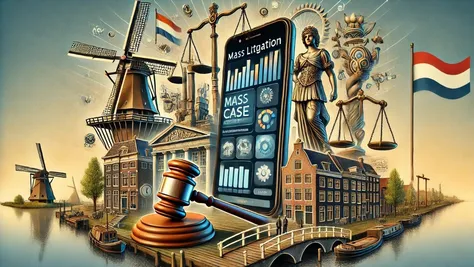Only few people realise that consumer protection regulations must also be respected when developing and playing computer games. It doesn’t happen very often, but even in the Czech Republic we have encountered inspectors from the Czech Trade Inspection Authority checking whether a computer game violates consumer rights. So, what should video game developers be aware of, and how are players of such games protected by law?
If you are a game developer or a game studio and you offer your product (digital content/service) for a fee or use your users' personal data in lieu of a fee beyond the scope of your legal obligations or the provision of the content itself, you enter into a digital content agreement with the player-consumer as the provider.
This is a type of contract that is subject to a number of legal requirements that developers should reflect in their terms and conditions or end user license agreement (EULA). The most important ones are described below.
Consumer’s right to withdraw from the purchase of a video game
According to the Czech Civil Code, a video game is also considered digital content and the consumer may (in the case of online sales) exercise the right of withdrawal within 14 days from the conclusion of the contract. Unless otherwise stated in the contract or in your terms and conditions, you must make the digital content available without undue delay. Of course, it is also advisable to inform the user in these documents of the possibility of later delivery (such as when the video game is pre-ordered before the release date).
The consumer does not have a right of withdrawal if he has expressly agreed in advance that the content would be made available to him before the expiry of the withdrawal period and the seller issues a confirmation of the conclusion of the distance contract. For example, consumer consent can take the form of a check-box that the player checks before downloading/installing the video game (this is standard practice of global marketplaces).
If you already require similar consent, we recommend that the check-box is not pre-ticked so that the consumer has a free choice (not an opt-out); otherwise, the digital content should be delivered to the consumer immediately after the expiration of the 14-day withdrawal period. This fact must be reflected in the terms and conditions or the EULA.
Content free of defects
Video game studios, as providers of digital content, are also liable to consumers for defects in that content. In this respect, video game developers must ensure that their game content:
- conforms to the agreed and usual characteristics – i.e., it is the ordered video game[1], which is compatible with the specified operating system/console;
- is provided with the agreed accessories, instructions for use and user support – in the context of video games, accessories can be defined as, for example, an additional content purchased (such as skins in the collector’s version), and instructions for use can be defined as installation instructions and information as to where to download the game, minimum and recommended technical requirements, such as CPU performance, graphics card, RAM size or required storage space, and internet connection speed[2].
The digital content provider is also liable to the user for a defect caused by incorrect connection of the digital content to the user’s digital environment, which has been made by the provider or a third party designated by the provider, or if it has been made by the user but the defect is due to insufficient instructions.
Connection means connection to the user’s hardware and software equipment, including network connection. As a result, if the video game cannot be installed/played by the user for reasons other than a fault in the player’s equipment (such as error messages pop up after installation and necessary updates not being downloaded/installed), the player has the possibility to exercise against the provider his rights arising from defective performance (see the following section).
Rights from defective performance and updates
If rights arising from defective performance are exercised, it is first of all necessary to distinguish whether the digital content in question is made available on a one-off basis or whether it is a continuous provision (i.e., a subscription).
For one-off purchases, similar rules apply as for goods – the provider must ensure that the computer game/application will work on the given device for two years after it is made available to the user. On the other hand, in the case of continuous provision (subscription), the provider is liable for all defects for the entire duration of the commitment. For example, if a user purchases a game on a subscription basis (e.g., World of Warcraft), the provider is obliged to keep the digital content free of defects and, if necessary, to remove defects on an ongoing basis.
As far as consumer claims in the case of a defect in digital content are concerned, the player may demand its removal, which can be expected to be the most common way of resolution (correction by a new update, hot-fix, admin via ticket, etc.). Removal cannot be requested if it is impossible or unreasonably costly. This will be assessed in particular in the light of the significance of the defect and the value that the digital content would have had without the defect, for example, if one side-quest out of a hundred does not work in the game[3].
Related to the above is the obligation to update, which requires the digital content provider to ensure that the digital content is free of defects for the duration of the commitment and to notify the user of the availability of updates. It is the notification that is also a very important key to exercising rights arising from defective performance. If the user fails to perform an update, the urgency of which has been notified to the user, the user shall have no rights arising from the defect caused by the failure to perform the update.
Alternatively, if the defect is not satisfactorily remedied, the user may demand a reasonable discount (the difference between the value of the digital content without defect and the defective digital content provided to the user) or withdraw from the contract (which is not possible if the defect in the digital content is only insignificant).
What else should you have in mind?
Besides the obligations in the Civil Code referred to above, it is also necessary to keep in mind the information duties laid down in the Consumer Protection Act. In particular, the information duty to properly inform the consumer about the scope, conditions and method of exercising the right arising from defective performance – the complaint, together with information on where the complaint can be filed, as well as theinformation duty regarding out-of-court settlement of consumer disputes. Compliance with these information duties is often checked by the Czech Trade Inspection Authority – including in the case of video game developers. This information can be included in the terms and conditions or the EULA. Please note, however, that these duties already applied before the latest amendment to consumer law.
For completeness, please note that if you offer various discounts or promotions such as “20% off the purchase of XY items” in the sale of digital content, you are not required to provide information about the lowest price the seller offered and sold the product for in the 30 days before the discount. This obligation does not apply to services (including digital services) or digital content.
Upon request, we will be pleased to discuss any issues related to the localisation of legal documents with you and assist you with a more detailed interpretation of the relevant legal provisions or the correct setup of your documents and processes.
- [1] – For example, the makers of ‘No Man's Sky’ were inspected by the UK’s Advertising Standards Authority (ASA) for misleading promotional material and trailers for the game which, according to the complainants, did not match the actual footage of the game. However, after investigating the case, the ASA concluded that consumers had not been misled.
- [2] – PlayStation Plus Premium and Xbox Game Pass Ultimate allow users to stream games via a cloud.
- [3] – For example, CD Projekt Red studio was unable to fix the quest in Witcher 3: Wild Hunt and placed the final reward crate in the game as an excuse.










